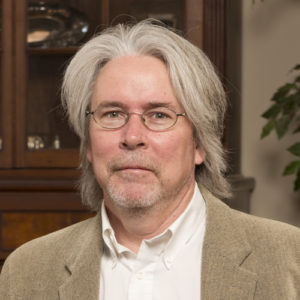Trevathan reflects on missed opportunities as undergraduate

It may be hard for many of you to believe (and it is for me, too), but I was once an undergraduate English major, loving my lit classes and struggling in practical ones like accounting and economics, thinking maybe I’d try to get into law school. And I think back on those days at the University of Louisville (UL) and wish I’d gone to a small liberal arts school. I wonder how many opportunities I missed because I didn’t.
I loved University of Louisville basketball, and still do. The Cardinals won the national championship my senior year (I’m not giving the year). Do you think I had a class with any of those guys or that I saw them strolling across campus? Hardly. I saw them far below me as tiny figures running faster and jumping higher than the other tiny figures in an arena called Freedom Hall.
At Maryville College, athletes go to class, excel in class, and perform a few yards away from us on the fields and courts. They are our partners here in the pursuit of knowledge, from my experience with them. I wish I’d gone to a school like Maryville, not only because of the student-athlete model, but also because I would have played college tennis.
The big difference in going to a small school versus a large one? The odds are better for becoming a leader, whether it’s on the football field, in SGA or in one of many clubs.
As an undergraduate, I commuted to classes from an apartment I shared with my brother and his wife. I had various jobs that are now nearly obsolete, from newspaper deliverer to dishwasher to college library book shelver.
The community I shared on campus was a small one: a few other library clerks and a small group of English majors fired up about stuff like Virginia Woolf’s “Mrs. Dalloway.”
UL wasn’t a total loss; I developed a love for literature and connected with a couple of faculty mentors. But my education was not what it could have been at a smaller school with a more unified sense of community, a covenant, and leaders—student, staff and faculty—that see you and say hello just about every day.
That leads me to place, a concept that has become so important to me over the years, mostly pertaining to the outdoors. The place I remember most at UL, besides Freedom Hall, was a musty warehouse we went to as library workers. I can’t even remember why we went there, but it had a spooky, abandoned feel to it, right next to a busy four-lane. It had freight elevators.
At MC we have buildings with histories that mean something to us all. We share the cow story and the Stumpy ghost story of Anderson. We celebrate Mountain Challenge, the College Woods and the chapel. I’m still learning. I found out recently there’s a Crawford House ghost.
If there was a career center at UL, nobody ever told me about it. Nobody talked about what kind of people would hire me because I liked to talk about “Mrs. Dalloway.” They just assumed I’d go to a graduate school. And I went to one. And another. And another.
I think if I’d gone to a place like MC, I would have learned more, probably figured out what I wanted to do a lot sooner than I did and had a lot more fun at it. Sadly, I think my NCAA eligibility for tennis has expired.
